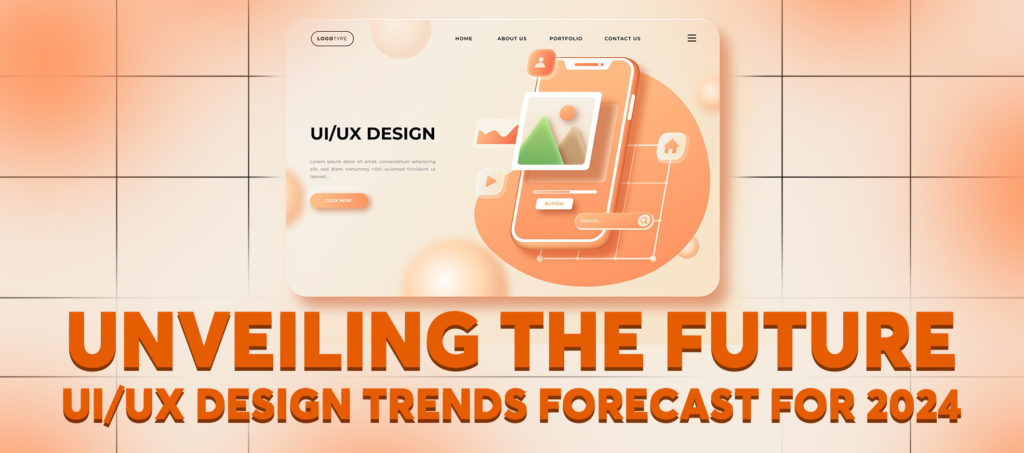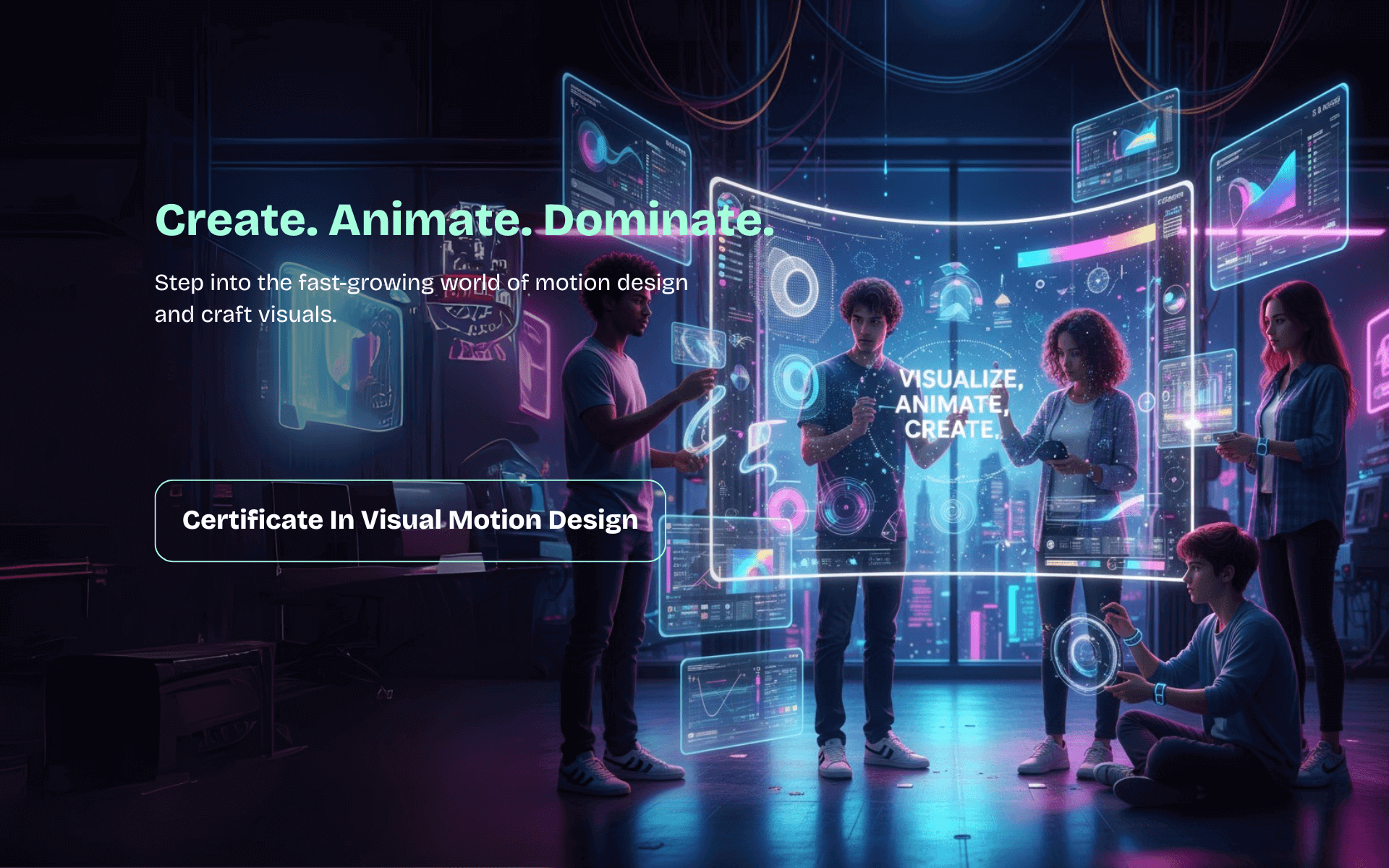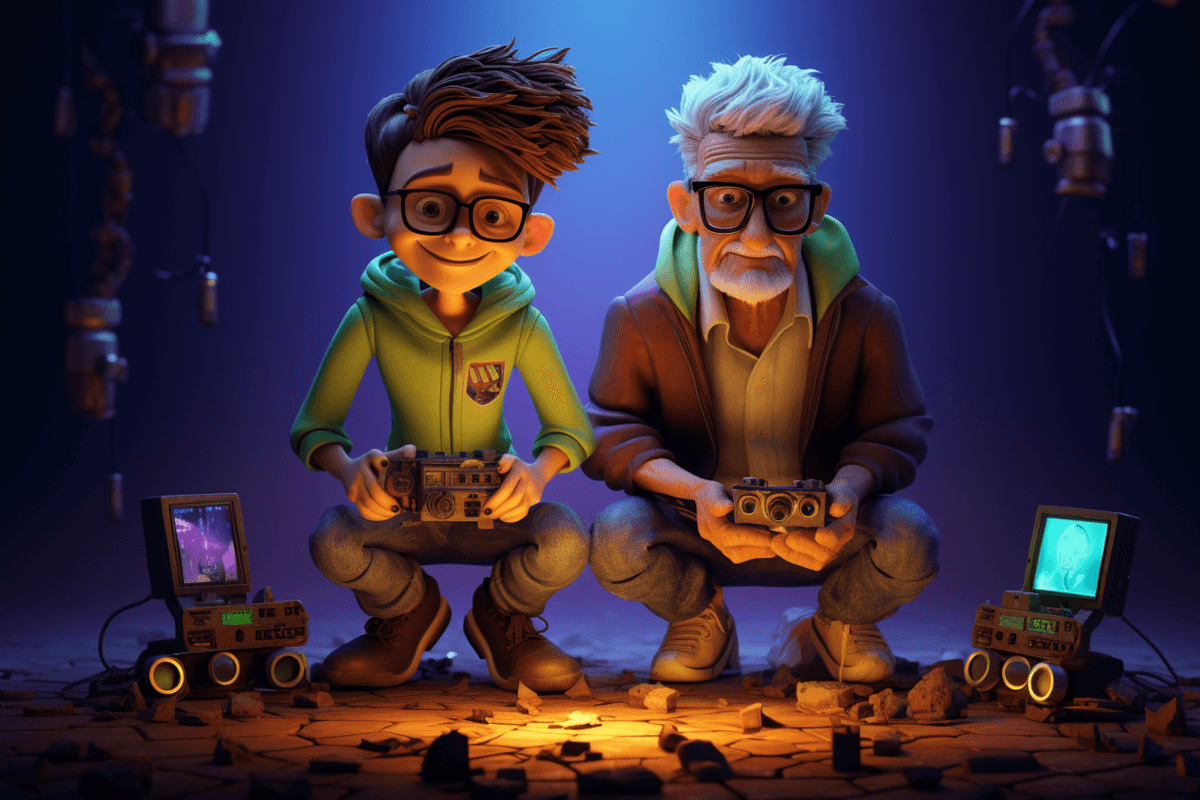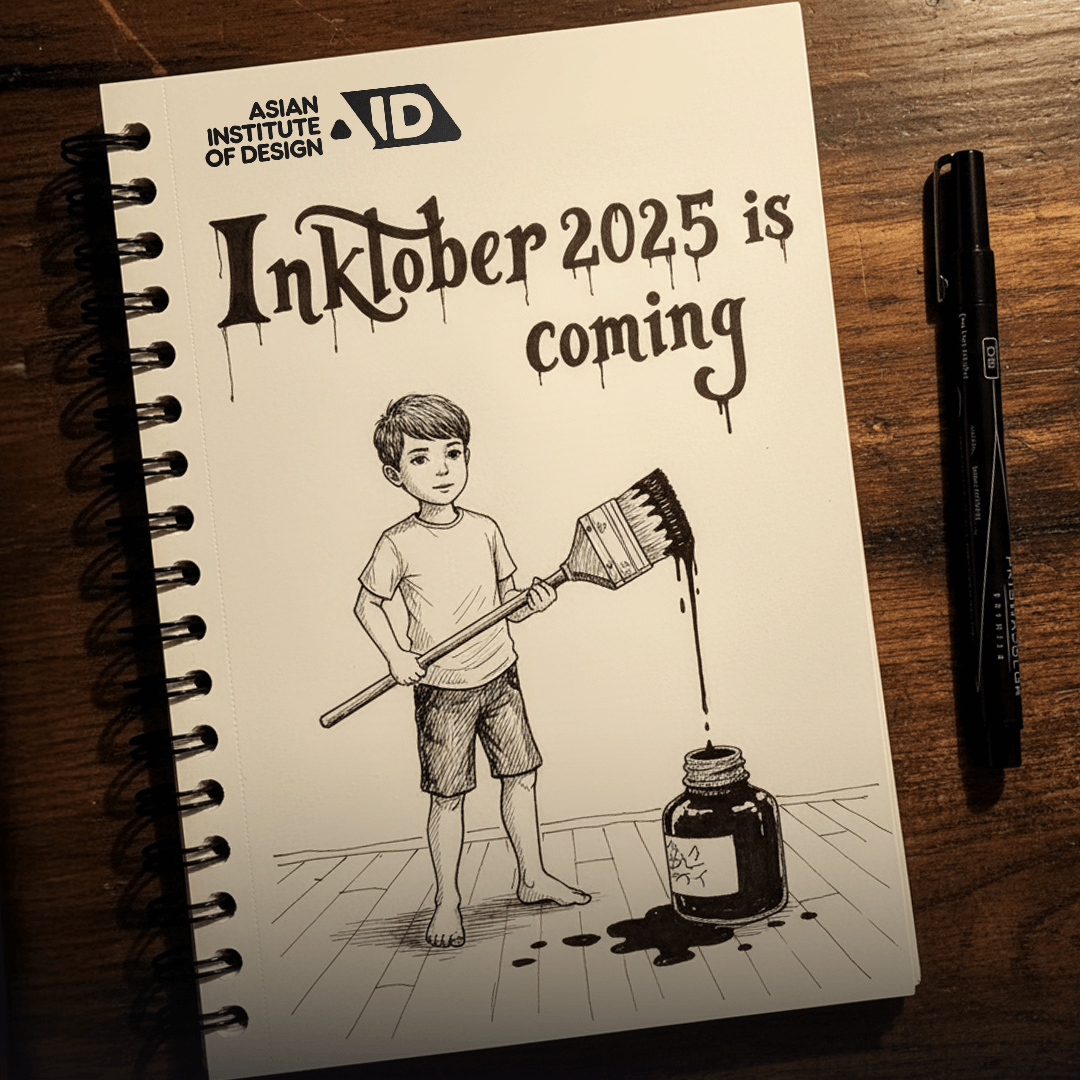Unveiling the Future: UI/UX Design Trends Forecast for 2024

The world of User Interface (UI) and User Experience (UX) design is poised for groundbreaking transformations in 2024. With a staggering 4.6 billion people navigating the internet, the influence of design on digital experiences has never been more critical and experiential. The possibilities are endless and the technology is cutting edge to offer 360 immersive experiences.
Here are the top trends to watch
3D Design Revolution in 2024: Taking Augmented Reality to the next level
The integration of 3D elements into UI design is undergoing a revolution, expanding beyond gaming and e-commerce. In 2024, these immersive elements will infiltrate educational apps, virtual event platforms, and even everyday tools like calendars and fitness apps. The depth and realism offered by 3D designs enhance user engagement, making mundane tasks enjoyable and complex interactions intuitive. This trend is ushering in a new era of Augmented Reality (AR) and Virtual Reality (VR) environments, bridging the gap between the digital and physical realms.
Neomorphism: A New UI Aesthetic:
Neomorphism, with its soft and tactile screen experience, evolves in 2024 to include interactive elements. Light and shadow create not just depth but respond to user interactions, providing an intuitive and natural feel. This design trend focuses on making digital interactions comfortable, reducing strain during extended usage.
Micro-interactions: Enhancing User Engagement:
Micro-interactions, the subtle heroes of UI design, go beyond visual delight in 2024. Designers are integrating them as key components in user engagement strategies. Progress bars now provide feedback on user input speed, and icons change shape or color in response to user actions. These interactions make digital platforms more intuitive and reduce the learning curve for new users.
Glass Morphism: The Future of UI Aesthetics:
The sleek and modern look of glass morphism, with its translucent, frosted-glass effect, is set to define the future of UI design. In 2024, this trend will see new adaptations, especially in terms of cross-platform compatibility. Designers are exploring innovative ways to incorporate glass morphism in data visualization, creating a focus on critical information without overwhelming the user.
Adaptive UI: Personalized User Experiences:
Dynamic and adaptive interfaces take center stage, becoming the cornerstone of personalized user experiences. In the upcoming year, interfaces will not only adapt to user preferences but also to environmental factors such as lighting and noise levels. This inclusive design approach caters to a diverse range of users, making technology more accessible and user-friendly for everyone.
Similar Articles
-

AI is Revolutionizing the Gaming Industry 10-14-2025
Ever been outsmarted by a clever enemy in a video game, or wondered how a…
-

ACES COLOR SPACE IN VISUAL EFFECTS 10-10-2025
ACES, which stands for the Academy Color Encoding System, is a standardized color management system…
-

The Future of 3D Game Art (2025): Trends, Tools & New Roles Every Studio Needs 09-23-2025
Game art is no longer just “model, texture, animate.” With real-time engines (UE5/modern Unity), procedural…
-

Ignite Your Ink: Why You Should Be Part of Inktober 2025 09-17-2025
Hey budding artists ? Every year, artists around the world challenge themselves to draw one…